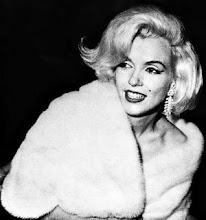Friday, July 12, 2013
The Bling Ring
Halfway through The Bling Ring, as the snobby rich teenage robbers headed into their fifth or sixth or seventh house, I thought to myself,” I’ve seen this, I get it, what’s the point?” I began to wonder why Sofia Coppola was showing the same thing again and again. The repetitiveness of the robberies, the clubs, the drugs and the drinking began to put me in a trance.
Coppola’s movies create a mood or you could say a feeling that lulls you into each of her worlds. Characters drift around Tokyo, Versailles or in this case, Los Angeles, as catchy music and static camera shots watch them dance around, stare out a window or try on clothes. Sometimes it works perfectly, as is the case with Lost in Translation, and other times the story gets lost and it begins to seem like one long music video, as with Marie Antoinette. One thing is true, all of Coppola’s movies build image upon image and let the character’s motivations, thoughts and desires be told, not through dialogue, but through the unraveling images and scenes which a viewer is left to decipher and interpret. She presents her characters and their worlds and leaves it up to us to decide how we want to feel about them. This is probably why on Rotten Tomatoes there are quotes from critics such as this,
“What does Coppola want us to think about these beautiful young idiots? What does she think? She's too cool or too wary or too close to her subject to engage”
or this
“Coppola neither makes a case for her characters nor places them inside of some kind of moral or critical framework; they simply pass through the frame, listing off name brands and staring at their phones.”
But for me, when the film was over I walked out and realized that I’d really enjoyed it. The scenes where the kids broke into each celeb's house, wandered amongst the often gaudy decor and took a sampling of the designer clothes/glasses/jewelry that filled rooms was fascinating and dangerously delightful. Their free flowing, self-absorbed conversations were humorous and engaging in comparison to similar scenes in a movie like Spring Breakers.
Instead of delving into who these kids are or showing in detail their trials and the aftermath, Coppola makes the bulk of the film scenes of celebrity/fashion obsessed kids ransacking through house after house. When it premiered at a film festival there were some critics which said they would have appreciated to have learned more about the young robbers’ backgrounds, what drove them to the crimes and why they would feel it was okay to do what they did, but I think in a way, Coppola conveyed an answer to all those questions.
Take for example an early scene in the movie. A teenage boy arrives in a new school. A pretty well dressed girl shows kindness to him and they agree to meet later. They immediately click and without much thought or planning the charismatic girl convinces the shy boy to sneak into a luxurious house where they end up stealing some things.
Peer pressure.
Another scene, two friends who live together are woken up by one of their mothers. They meander down to a kitchen straight out of a magazine. The mother gives them their daily Adderall and then leads the family prayer. It’s not any ordinary prayer though; it’s a prayer about self-empowerment. It’s a prayer for those who believe in the new religion which came from the self-help book, The Secret.
Rich spoiled kids.
Delusional mother.
Lack of parenting skills.
It seems that Coppola wasn’t concerned with delving deeper; there just simply wasn’t more to them than what she showed. They are a product of their environments and environments are exactly what Coppola is always able to capture and show.
And, maybe audiences/critics want to see some change in these kids’ characters or some growth as human beings but that’s not the real story. If you watch any interview with the real person which the character Emma Watson played is based on, she didn’t learn anything. She is an even bigger self-centered, celeb-obsessed person than her character in the movie. In post-prison interviews on E! she spouts wisdom which she’s learned since her prison sentence with a fake and rehearsed sentimentality that even the best PR agent in Hollywood couldn’t teach.
These kids were not just obsessed; they had been educated by the celeb/tabloid environment that surrounded them every day so that it was their reality. They simply lived a life of freedom, wealth and wannabe fame; all of which would make them feel they weren’t doing anything terribly wrong when they broke into a celebrity’s house.
Was it the influence of peer pressure? Was it their parents own lack of parenting skills and ridiculous theories for child rearing that led them to feel self-entitled? Was it simply how easy it was to get away with it and the influence of a culture that gives more than these kids ever deserved?
Coppola presents all as answers and lets us decide.
As for what Coppola thinks about her subjects, it seems she understands what led them to make the choices they made, but that doesn’t stop her from thinking that they and the rest of the celeb obsessed culture are ridiculous. Why else would she cast Leslie Mann, in a wonderful supporting role, as a loony and totally out of reality mother if not to poke fun? Coppola, who grew up and still lives in a rich California society, most likely understands these kids better than anyone.
Subscribe to:
Post Comments (Atom)


No comments:
Post a Comment